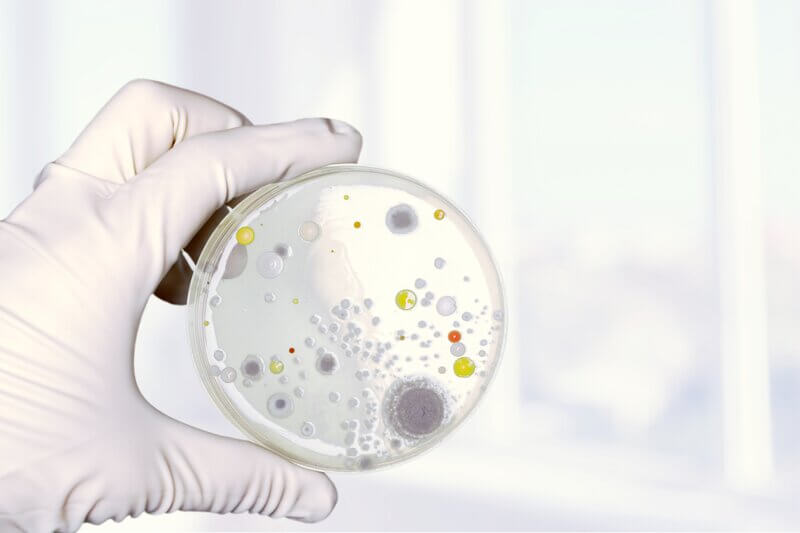Industrial facilities are the backbone of modern production, but they often face a hidden enemy: mould. Mould growth can wreak havoc on these spaces, compromising hygiene, safety and efficiency.
One often-overlooked contributor to the mould issue is silicone, a versatile material used extensively in industrial settings. In this article, we will explore how silicone can harbour mould and bacteria when it becomes old or damaged, and perhaps more importantly, we’ll discuss how to prevent this problem through proper silicone cleaning and maintenance.
Understanding the silicone problem
Silicone is a widely used material in industrial facilities, prized for its versatility, durability and resistance to extreme conditions. Silicone, a synthetic polymer composed of silicon, oxygen, carbon, and hydrogen, exhibits remarkable heat resistance and remains flexible across a wide range of temperatures, making it great for the intense environments of industrial facilities.
However, silicone can deteriorate, developing cracks and imperfections that provide an ideal breeding ground for mould and bacteria. These microorganisms can thrive in the crevices and corners of silicone surfaces, posing severe health and safety risks to facility workers and products.
Why is mould so dangerous?
Mould is not just an aesthetic or cleanliness issue; it poses serious health risks. Leaving mould to fester and grow can result in issues such as:
- Respiratory Problems: Inhalation of mould spores can lead to respiratory issues, especially in individuals with allergies or asthma.
- Allergic Reactions: Mould can trigger allergic reactions, causing symptoms like sneezing, coughing and skin rashes.
- Toxic Mould: Some mould species produce mycotoxins, which can be harmful when ingested, inhaled, or come into contact with the skin.
- Weakened Immune System: Prolonged mould exposure can weaken the immune system, making individuals more susceptible to infections.
- Structural Damage: Mould can also cause structural damage to buildings, affecting their integrity over time.
Identifying mould-prone areas
To effectively combat mould growth, it’s essential to identify the areas within your industrial facility where silicone is commonly employed. These areas, which are often hotspots for mould due to their exposure to moisture and other environmental factors, include silicone seals around pipes, vents, machinery joints, and other vulnerable points.
Without proper maintenance, these sites can become the perfect breeding grounds for harmful mould colonies, potentially endangering your facility’s hygiene and the well-being of your workforce and the public.
The importance of routine maintenance
Preventive maintenance is the key to keeping mould at bay. Regular silicone inspection and cleaning can significantly reduce the risk of mould growth. Implementing a maintenance schedule that includes silicone cleaning will help you avoid mould problems, ensuring a cleaner and safer working environment for your employees. If you’re in the food manufacturing industry, preventing mould is even more imperative. Having contaminated food leave your factory is the last thing anyone wants, and if someone falls seriously ill, your business is all but over.

Cleaning techniques and solutions
When cleaning silicone surfaces, it’s crucial to use the proper techniques and solutions. Silicone is sensitive to harsh chemicals, so opt for mild, silicone-safe cleaners. Additionally, employ appropriate cleaning tools, such as soft brushes or sponges, to avoid damaging the material. Regular cleaning, using gentle methods, can remove surface mould and prevent further growth.
Replacing and upgrading silicone
Sometimes, silicone may be beyond repair, or its age and condition may warrant replacement. When replacing silicone, consider upgrading to newer materials that offer enhanced resistance to mould and bacteria. This investment can pay off in the long run by reducing maintenance costs and the risk of mould-related issues.
Leave it to the professionals
Mould growth in industrial facilities is a serious concern, especially in the food industry, but it can be mitigated through proper silicone cleaning and maintenance. Regular inspection, cleaning, and, if necessary, replacement of silicone materials can help prevent mould from taking hold. You can maintain a mould-free and safer industrial facility by taking these steps.
Of course, this is a lot of hard work, so the best thing to do is to call in the professionals!
We are experts in industrial cleaning, including silicone upkeep and replacement. We can help keep your food process free from even the hint of contamination and ensure your specialised (and expensive) machinery is kept in the best possible working condition. Be sure and check out industrial cleaning services, popular birdproofing services and birdproofing solutions blog post.
If you would like to protect your customers, workers and products from mould, then contact us today, and with our expertise, we can keep you and your business on the right track.

